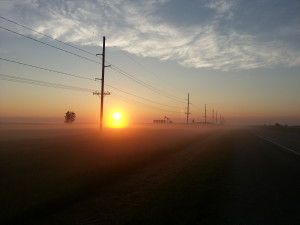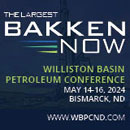BISMARCK, N.D. – The North Dakota Petroleum Council (NDPC) today released the final report detailing the results, research methodology and comparative analysis of the Bakken Crude Characteristics Study conducted this spring. The preliminary results of the study, which concluded Bakken crude is similar to other North American light, sweet crudes and does not pose a greater risk to transport by rail than other crudes and transportation fuels, were presented in May during the Williston Basin Petroleum Conference.
“This study provides the most thorough and comprehensive analysis of crude oil quality from a tight oil production basin to date,” said John Auers, executive vice president of Turner, Mason & Company, the engineering firm commissioned to conduct the study. “The study provides conclusive and consistent scientific data about Bakken crude that will help regulators, operators, shippers and other key stakeholders properly classify and monitor Bakken crude in the future.”
In addition to reinforcing the preliminary findings presented in May, the final report also outlined Field Operations Recommended Best Practices to ensure consistent operation of field treating equipment, Bakken crude oil quality and testing procedures and shipping classification. Some of the best recommended practices include (but are not limited to):
· Maintaining all fired treating equipment at a temperature between 90 degrees and 120 degrees Fahrenheit year round to help minimize light end components in crude and create a consistent industry standard to ensure optimal separation of water and gas from the crude oil stream;
· Providing maximum tank settling time possible prior to shipment;
· Reducing stock tank pressure to the lowest pressure possible to maintain vapor collection equipment (engineered flare, vapor recovery, etc.) operational integrity;
· Testing each unit train loading or tank shipment batch to ensure crude is within the established typical Bakken specifications;
· Classifying all Bakken crude as a Class III, Packing Group I hazardous material even if current testing methods would classify a shipment as Packing Group II.
“The study helped establish a baseline for Bakken crude characteristics, and by implementing the recommended best practices outlined in the report, we will ensure Bakken crude remains consistent to those properties,” said Kari Cutting, vice president of the NDPC. “Our members have already begun implementing many of those best practices, further emphasizing our commitment to safety, including in the movement of this valuable resource by rail.”
In addition to outlining recommended best practices and providing in-depth analysis of the final results from sampling and testing, the final report also compares analysis from other studies on Bakken crude, including a study commissioned by the American Fuel & Petrochemical Manufacturers (AFPM) and the U.S. Department of Transportation Pipeline and Hazardous Materials Safety Administration (PHMSA).
“The test results from this study are consistent with scientific data reported by the AFPM and PHMSA,” said Cutting. “All of this data does not support the speculation that Bakken crude is more volatile or flammable than other light, sweet crudes. We look forward to using this information to continue our work with regulators and rail companies to develop and implement standards that will ensure all flammable liquids, particularly crude oils that are safely transported by rail.”
Turner, Mason & Company will present the findings of the final report to the North Dakota Industrial Commission on Wednesday, August 6 at 11 a.m. The study was completed by Turner, Mason & Company and SGS Laboratories at a cost of approximately $400,000. The full report may be downloaded at www.ndoil.org/resources/BKN.
Since 1952, the Petroleum Council has been the primary voice of the oil and gas industry in North Dakota. The Petroleum Council represents more than 500 companies involved in all aspects of the oil and gas industry, including oil and gas production, refining, pipeline, mineral leasing, consulting, legal work, and oil field service activities in North Dakota, South Dakota, and the Rocky Mountain Region. For more information, go to www.ndoil.org.







